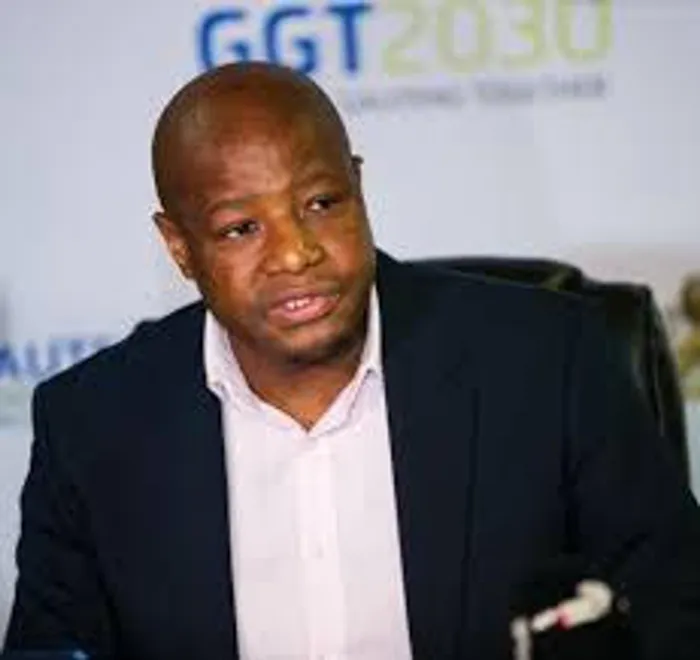Right to Justice Applies for Nolle Certificate to Privately Prosecute Ayanda Dakela
'Overwhelming evidence'

Ayanda Dakela, at the centre of procurement controversy, previously worked for CSIR and the Department of Public Works and Infrastructurebefore joining the Department of Health.
Image: Picture: File
This week, Right to Justice, a prominent civil society organisation, has formally applied for a nolle prosequi certificate from the National Prosecuting Authority (NPA) to allow them to proceed with a private prosecution against Ayanda Dakela, the suspended Head of Infrastructure at South Africa’s Department of Health.
This bold step comes as the organisation grows increasingly frustrated by what it perceives as a lack of action by the state in investigating and prosecuting serious allegations of corruption and misconduct.
The ‘nolle prosequi’ certificate is a legal tool that grants permission to a private party to pursue prosecution when the state opts not to pursue charges. In this case, Right to Justice argues that there is ample evidence against Dakela, but the state has failed to take adequate action.
The organisation’s application to the NPA is a signal that civil society is ready to step into the gap left by state inaction and ensure that justice is served.“We will not stand idly by while the system continues to rubber-stamp corruption,” said Siphesihle Jele, Chairperson of Right to Justice.
“There’s overwhelming evidence of Dakela’s misconduct, and the public deserves answers. If the state chooses not to act, we will ensure that the law catches up with him.”
Dakela was suspended in March 2024 after allegations that he interfered with procurement processes at the Independent Development Trust (IDT), exceeding his mandate and failing to disclose key information during his appointment. His suspension was part of an internal investigation initiated by Dr. Sandile Buthelezi, Director-General of the Department of Health.
Sources suggest the investigation is nearing completion, and the final report could trigger further disciplinary actions, including possible criminal charges.
Dakela’s suspension marks the latest chapter in a controversial career, one that has raised eyebrows in multiple government departments. In 2020, while seconded from the Council for Scientific and Industrial Research (CSIR) to the Department of Public Works and Infrastructure, Dakela’s tenure was abruptly ended after accusations that he misused ministerial letterheads without authorisation.
This breach of protocol contributed to the decision by then-Minister Patricia de Lille to terminate his employment.
Despite this troubled history, Dakela was appointed to head infrastructure projects within the Department of Health, a position that has now come under intense scrutiny due to delays and administrative issues surrounding major hospital repairs, including those at Charlotte Maxeke Academic Hospital.
As the Department of Health concludes its internal investigation, civil society organisations have increasingly demanded more transparency and accountability. Right to Justice has been vocal in calling for the government to take a firm stand against corruption and mismanagement within public health institutions.
The organisation filed criminal complaints against Dakela in January 2025, highlighting concerns over financial misconduct during his time at the Department of Health.“We are seeing a pattern of mismanagement and corruption that has plagued the health sector,” Jele added.
“It’s essential that we do not allow people in positions of power to continue to operate without consequence.”In addition to their request for the nolle prosequi certificate, Right to Justice has filed several requests under the Promotion of Access to Information Act (PAIA) to obtain the necessary documents related to Dakela’s suspension.
These documents, they argue, are crucial for understanding the full scope of the alleged misconduct. In response to the allegations, Dakela has maintained his innocence, criticising the ongoing efforts to pursue legal action.
Speaking to The Star previously, Dakela said, “I have been subjected to a relentless smear campaign. All these accusations are being made without any substance, and I believe they are politically motivated.”
He continued: “What is happening here is a simple case of people trying to target me, using my position to make headlines. I have always acted within the law and have done nothing that warrants these accusations.
''The truth will come out in due course.”
As the Department of Health’s investigation draws to a close and the NPA reviews the application for the *nolle prosequi* certificate, all eyes are on how this case will unfold.
With civil society groups urging swift action, the case against Dakela has become emblematic of broader concerns about corruption in South Africa’s public sector.